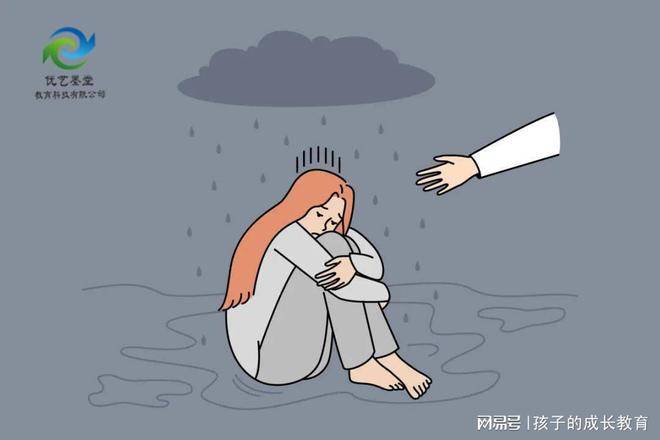Yes
Deconstructing Nighttime Anxiety in Adolescence
In a person’s life, adolescence is one of the most turbulent periods, symbolizing a significant transition from childhood to adulthood. This phase is filled with rapid physical, emotional, and psychological changes, which can sometimes trigger a series of challenges, including nighttime anxiety. My daughter is 14 years old this year and is on the threshold of puberty; she has recently been experiencing frequent anxiety at night, which has caused great concern for our entire family. We are trying to understand the reasons behind this phenomenon and find effective methods to help her overcome this tough situation. Xi’an Professional Psychological Counseling Agency
To understand the occurrence of anxiety, it is essential to focus on the physiological and psychological changes adolescents undergo. Puberty brings significant changes in hormonal levels, emotional fluctuations become part of daily life, and the pursuit of independence intertwines with a sense of reliance on the family. These natural changes can lead to internal instability, and nighttime is often when an individual feels most alone and ruminates the most; the lack of daytime activities to distract attention can easily give rise to feelings of anxiety.
Environmental factors also play an important role. The current educational system and social atmosphere exert pervasive pressure on students; considerations such as academic performance, social relationships, and future plans can become burdens weighing on my daughter’s mind at night. We have noticed that whenever exams are approaching or on days with social activities, her anxiety worsens, suggesting that her anxiety is closely related to daily pressures.
The influence of the family environment should not be ignored either. Parental expectations, the family atmosphere, and the ways parents and children communicate can all affect the child’s psychological state. Reflecting on our own behavior, we sometimes focus too much on grades and external performance, which may inadvertently neglect emotional communication with our daughter and attention to her inner feelings.
Further exploring personal factors, every child’s personality and coping strategies differ. Some children may be naturally more sensitive, perceiving and reacting to stress more intensely; others might feel helpless when facing challenges due to a lack of effective coping mechanisms. We have observed that, when faced with difficulties, our daughter often chooses to suppress her feelings rather than communicate openly, which undoubtedly exacerbates her nighttime anxiety.
To help our daughter alleviate this anxiety, we believe that a multi-faceted strategy is necessary. Creating a safe and supportive family environment is crucial. This means providing her with more emotional support, understanding her feelings through listening and empathy rather than simply solving problems. At the same time, encouraging her to engage in physical activities or other forms of relaxation during the day can help her relax and regulate her emotions better.
Improving sleep hygiene is also key. Ensuring regular sleep times, reducing nighttime use of electronic devices, and creating a quiet and comfortable sleep environment are practical strategies that can help reduce nighttime anxiety. Additionally, we teach her some simple relaxation techniques, such as deep breathing, meditation, and mindfulness practices, empowering her to self-soothe when feeling anxious.
We also plan to collaborate with the school to explore ways to alleviate academic pressure and encourage positive social interactions. The school is a child’s second social environment, and support from teachers and peers is equally important for her. By participating in interest groups or club activities, our daughter can not only cultivate new interests but also build a broader social network and learn to cope with stress in a team setting.
Professional psychological counseling is also one of the avenues we are considering. If the anxiety persists, seeking help from a psychotherapist may be necessary. Professionals can provide personalized guidance and intervention, helping our daughter identify and address her deeper inner issues.
Finally, we reflect on our role as parents, realizing that we must lead by example, demonstrating how to manage stress and emotions. The mindset and behavior patterns of parents profoundly influence children, so we commit to manage our emotions more actively and show greater resilience and calmness when handling family and work pressures.
Nighttime anxiety in adolescence is the result of the interplay of various factors; family, school, personal traits, and social culture may all contribute to different degrees. Addressing this issue requires a comprehensive effort, including enhancing emotional communication within the family, improving lifestyle habits, and seeking professional assistance when necessary. Our understanding and patience as parents will serve as a solid support for our daughter to overcome the challenges of this stage. Through our joint efforts, we hope to help her learn better coping strategies, enabling her to face future challenges with a healthier and more positive attitude.
Just as the sky of adolescence ultimately…


